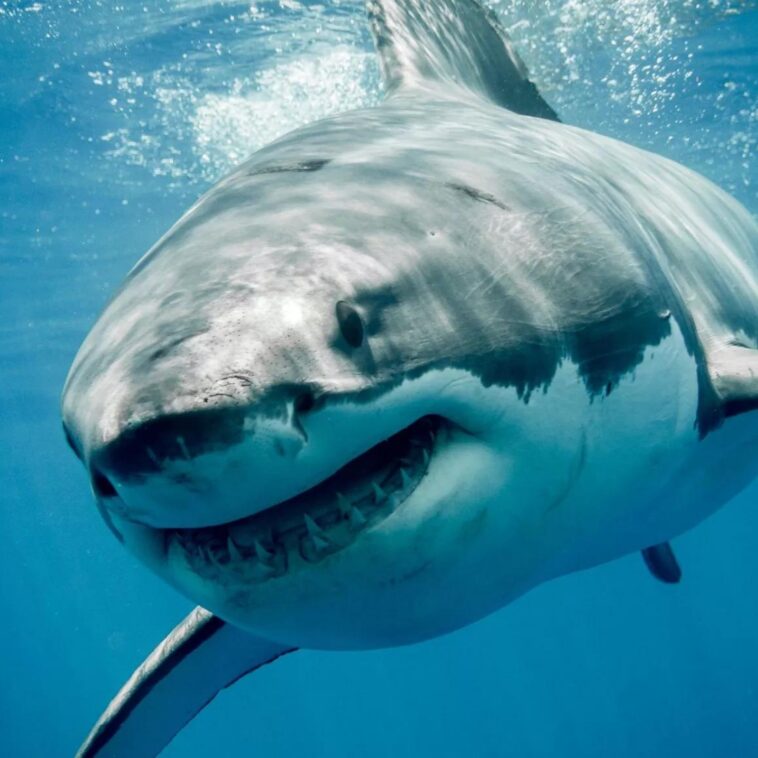Sydney, Australia – In a dramatic turn of events, the severed leg of 23-year-old surfer Kai McKenzie washed up on an Australian beach after he was attacked by a great white shark. Doctors are now racing against time to see if they can reattach the limb, as the surfing community rallies to support him.
The Shark Attack Incident
Kai McKenzie, a seasoned surfer and well-known figure in the local surfing community, was enjoying the waves near Port Macquarie in New South Wales (NSW) when tragedy struck. On that fateful Tuesday, a 3m (9.8ft) great white shark attacked him, severing his leg. Despite the severity of the attack, McKenzie’s presence of mind and quick action allowed him to catch a wave into shore. There, an off-duty police officer quickly used a makeshift tourniquet, fashioned from his dog’s lead, to stem the bleeding and save McKenzie’s life until paramedics arrived.
Immediate Medical Response
Authorities praised the off-duty officer for his rapid response. “He used the lead off his dog as a tourniquet… and essentially saved his life until the paramedics got there,” said NSW Ambulance’s Kirran Mowbray. Describing McKenzie as “calm” and “able to talk” after the attack, Mowbray added, “He’s just a really brave and courageous young man.”
Locals acted swiftly, retrieving the severed leg that washed up on the shore shortly after the attack. They put it on ice, following standard medical advice to preserve severed limbs for potential reattachment. The quick thinking and coordinated efforts of everyone involved provided McKenzie with the best possible chance for recovery.
Transport and Medical Assessment
McKenzie was initially rushed to a local hospital in Port Macquarie. Given the severity of his injuries, he was soon airlifted to John Hunter Hospital in Newcastle, approximately 200km (124 miles) away. John Hunter Hospital is a major trauma center, equipped to handle complex surgeries such as limb reattachment.
His severed leg, carefully preserved by the locals, also made the long journey. The medical team at John Hunter Hospital is now assessing whether it is possible to reattach the limb. This complex surgical procedure will require a team of specialists and cutting-edge medical technology.
Community Support and Fundraising Efforts
McKenzie, a sponsored surfer with a promising career, had only recently returned to the water after recovering from a significant neck injury. The local community and surfing enthusiasts worldwide have rallied to support him and his family. A GoFundMe page set up for his medical and rehabilitation costs has already attracted over A$75,000 ($49,000; £38,000) as of Wednesday.
Donations continue to pour in, accompanied by messages of hope and encouragement from around the globe. The outpouring of support highlights the close-knit nature of the surfing community, which often bands together in times of crisis.
The Prevalence of Shark Attacks in Australia
While Australia experiences more shark attacks than any other country except the United States, fatal incidents remain relatively rare. The country has invested heavily in shark deterrent technologies and public awareness campaigns to reduce the risk of attacks. However, incidents like McKenzie’s underscore the ongoing risks that surfers and swimmers face in Australian waters.
In recent years, there has been increased research into shark behavior and efforts to develop non-lethal methods to keep both sharks and humans safe. These include shark-spotting drones, smart buoy systems that detect sharks, and public education on safe swimming and surfing practices.
The Road to Recovery
As McKenzie faces a challenging road to recovery, the support from the community provides a ray of hope. Donations continue to pour in, and messages of encouragement flood social media. McKenzie’s bravery and the quick actions of those around him highlight both the dangers of the ocean and the resilience of the human spirit.
Rehabilitation will be a long and arduous process, involving physical therapy, psychological support, and potentially further surgeries. The surfing community’s solidarity and the generosity of strangers will play a crucial role in McKenzie’s recovery journey.
Reflections on Ocean Safety
This incident has sparked renewed discussions about ocean safety and the balance between human activity and marine life conservation. While surfing and other water sports are integral parts of Australia’s coastal culture, they come with inherent risks. The incident serves as a stark reminder of the power and unpredictability of nature.
Experts advocate for continued investment in safety measures, such as enhanced beach patrols, advanced warning systems, and public education. They also emphasize the importance of respecting marine life and understanding that shark attacks, while tragic, are rare and often the result of mistaken identity.
Kai McKenzie’s story is a powerful reminder of the strength and solidarity within the surfing community. As doctors work tirelessly to reattach his leg, the world watches with bated breath, hoping for a successful outcome. McKenzie’s courage in the face of such adversity is truly inspirational, and his recovery journey will be closely followed by many.
The incident also serves as a call to action for increased safety measures and a deeper understanding of the marine environment. By learning from such incidents, we can strive to make the ocean a safer place for everyone while respecting its natural inhabitants.





GIPHY App Key not set. Please check settings